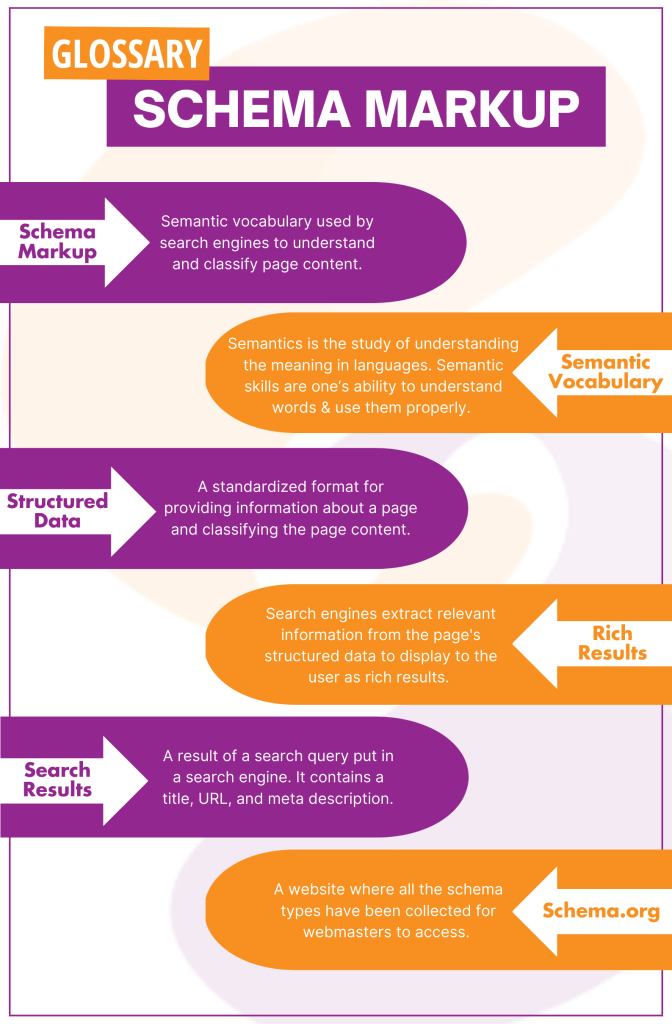- March 15, 2023
- Posted by: CENTERSPREAD
- Category: Uncategorized

Do you want to show your content to as many website visitors as possible? Do you want to ensure that search engines recognize the potential and quality of your content?
If your answer to the questions above is yes, you need schema markup on your website. It is the ultimate SEO hack that most businesses fail to implement, which in turn drives them to the deep recesses of pages 4 & 5 of Google SERPS.
Let us first understand what schema markup is.
What is Schema markup?
Schema markup is the semantic code you add to your web pages to help search engines understand your content more effectively. It uses a set of standardized tags in the HTML code of a webpage to provide additional information about the content on the page.
These tags, also known as microdata, help search engines better interpret the information on a webpage, such as the type of content, the author, the publishing date, and so on.
Why is Schema important?
- Schema is a game-changer when it comes to boosting your website’s visibility on search engine results pages. By providing search engines with additional context about your content, you can catapult your website to the top of the rankings and attract more eyeballs than ever before.
- If you want to make your website stand out in search results, Schema markup is your secret weapon. By giving search engines the information they need to create rich, informative snippets for your website, you can make your listings irresistible to users and increase click-through rates like never before.
- Schema ensures that your website is matched with the most relevant search queries, and you get high-quality traffic that converts.
- When it comes to making your website stand out in search results, rich snippets are the ultimate weapon. By using Schema markup, you can create compelling, informative snippets that grab users’ attention and drive traffic to your website.
- If you want your website to rank for voice searches, marking up your data can help you do it. The microdata tags used on your website can provide additional context to voice assistants like Siri, Alexa, and Google Assistant. It ensures that your website is the top pick for the particular search query.
- Google, Bing & Yahoo; are continuously working to improve their understanding of a query, the searcher’s intent & the content available online. If you want to stay ahead of these upgrades, Schema markup is a must-have for your website.
Important Glossary Terms:
If you’re new to schema markup, it can be easy to get lost in all the technical jargon and confusing terminology.
That’s why we’ve put together a glossary of important schema markup terms to help you make sense of it all. From “Rich Snippets” to “Structured Data”, we’ve got you covered with easy-to-understand definitions.
So take a look at our schema markup glossary infographic.
Different types of Schemas:
Some common schema markups that you will find are given below:
- Article
- Local Business
- Movies
- Book reviews
- Software
- Restaurant
- Events
- Products
- Services
- Content Type (Image, Video, Audio)
- FAQ
But Google understands 32 types of schema. Therefore, check out the list and markup your content accordingly, to provide Google better context about your content and increase your chance to rank high in SERP.
How to generate Schema markup?
Follow the steps below to generate the different types of relevant schemas for your website:
- Identify the content on your website that you want to markup with schema. This could include marking up your logo, address, products, services, events, recipes, reviews, and more.
- Choose the appropriate schema type for the content you want to markup. There are many different schema types available, so make sure to select the one that best matches your content.
- You don’t need first hand knowledge of JSON-LD to generate schemas. There are several online tools available, such as Google’s Structured Data Markup Helper or Schema.org’s Schema Markup Generator. Use any one of them to create the schema markup. You can also use plugins such as Schema & Structured Data for WP & AMP to markup the data on your website.
- Enter the relevant information about your content into the tool, such as the name, description, and other details.
- You can add the relevant schemas to your website’s HTML code manually. If you are using a plugin, it will automatically add the schemas that you have chosen.
- Now it’s time to review and test the schema markup to ensure that it is accurate and properly formatted. You can use Google’s Structured Data Testing Tool to check your markup.
Conclusion:
Using structured data can be an absolute game-changer for your website’s SEO efforts. It’s like giving the search engines a VIP backstage pass to your content, making it easier for them to understand and show your website in relevant search results.
And let’s be real, if you’re not showing up in search results, you might as well be invisible on the internet.
With so many different types of schema available, it’s crucial to choose the one that matches your content and optimize it for your audience. Luckily, there are tons of tools out there to help you generate schema markup and take your SEO to the next level.
So what are you waiting for? It’s time to get in the schema game and show the world what you’ve got!
